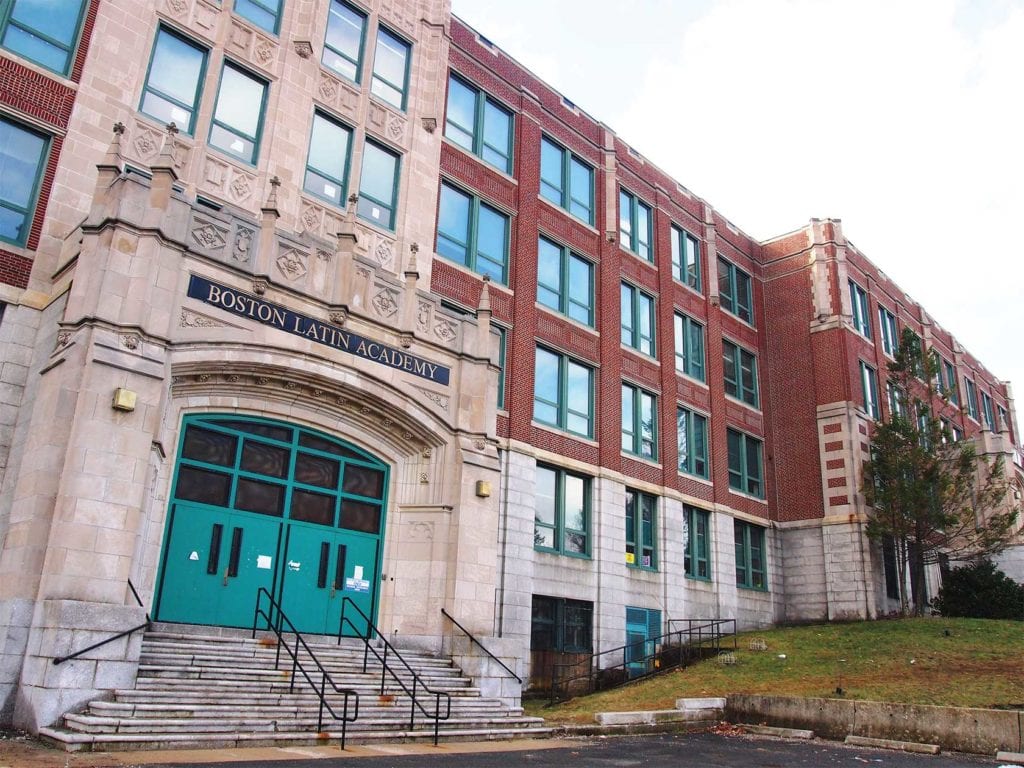
Boston advocates are continuing their call for changes to the city’s exam school admission policies to be more inclusive of minorities, as the district turns over operations to new Superintendent Brenda Cassellius.
Lawyers for Civil Rights and the Boston branch of the NAACP sent a letter last week to Cassellius, Mayor Martin Walsh and the Boston School Committee, noting the low levels of black and Latino enrollment at the three exam high schools, Boston Latin School, Boston Latin Academy and the John D. O’Bryant School of Mathematics and Science.
“Although these institutions represent some of the best in public education, it is a simple and irrefutable fact that the schools do not reflect the diversity of the rest of the city,” the letter, written by LCR Executive Director Ivan Madrigal-Espinoza, reads.
In the 2018-2019 school year, black students made up 7.5 percent of BLS enrollment and 20.9 percent of BLA, despite being 30.9 percent of total students across the Boston Public Schools district, while Latino students, 42.1 percent of the total, made up 12.5 percent and 25.5 percent of BLS and BLA, respectively. The disparities in enrollment have persisted for years.
Currently, admission to the city’s three exam schools is based on students’ grades and their score on the Independent Schools Entrance Exam (ISEE), which students can take in sixth or eighth grade. However, the letter says, neither of these measures is an accurate way of gauging students’ abilities, due to differences in grading at each lower school and flaws in the ISEE, which includes material not covered in BPS curriculum and “has never been validated for students of color.”
In addition to making it more difficult for minority students to get into exam schools, the letter explains that the resulting enrollment disparity makes the environment less appealing to those minority students who are awarded admission.
“When a school lacks a critical mass of students from racial minority groups, those students may feel isolated and be seen as spokespersons for or tokens of their race, which negatively impacts both their school experience and the culture of the school as a whole,” the letter says.
Dan O’Brien, spokesman for BPS, said that the district is working on making the admissions process more inclusive.
“Every child deserves an equitable and excellent education,” O’Brien said. “The Boston Public Schools is committed to ensuring all children are successful. We value all voices within our community.”
Some steps underway
BPS has made some changes to address the racial disparities. Since 2015, BPS has raised the rate of exam school invitations for black and Latino students from 30 to 40 percent. The number of seats in the ISEE preparation course offered by the district was expanded to 350 in 2016, resulting in higher minority enrollment. This fall, for the first time, the ISEE exam will be offered during the school day instead of on Saturdays as it has been in the past, which posed transportation issues for some students.
The letter sent by LCR and the NAACP included suggestions for improving the exam school admissions process, sourced from community meetings held across the city since 2017. The suggestions include extending invitations to a top percentage of students in each public school or zip code, using a holistic model to evaluate each individual students’ strengths, or, if an exam portion is retained, implementing an exam that focuses only on material covered in current BPS curriculum. These changes would allow the district to improve diversity in accordance with state and federal discrimination laws.
The letter, dated June 19, asks BPS to respond within 14 days.






